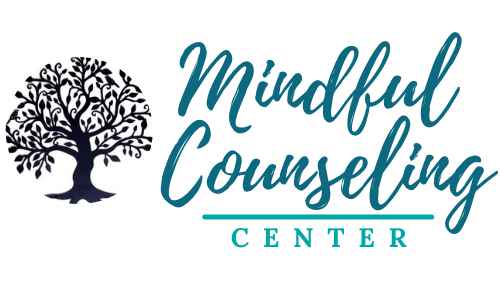Medication in Mental Health Treatment

People are sometimes reluctant to consider medication to help ease suffering caused by mental health condition(s).
Reasons why vary, but here are a few examples: Some individuals may take a stoic approach, believing that they shouldn’t need medication to deal with these kinds of problems. Their families and friends might also be critical of using medications for mental health conditions. Some people may fear being victim to a mental healthcare “industry” they believe is pushing medication for its own profit. Some may simply be afraid of medications’ side effects, having heard cautionary tales. Some may fear drug dependency, once they start taking a medication for mental health purposes.
Let’s talk generally about medication in mental health treatment.
Just so you know: The Mindful Counseling Center offers talk therapy and psychoeducation. Our psychotherapists are not trained or licensed to prescribe medication. Nor do they not seek to persuade clients to take or not take medication for mental health conditions.
However, our therapists do want their clients to have the flexibility to fully explore their treatment options—including medication—without fear, so they can end up with an effective mix of treatment activities for them. Below are educational tidbits about medication in mental health treatment that therapists might share with clients to speak to their related concerns.
Medication is frequently not the first line of mental health treatment, nor the only treatment utilized. It is possible that pharmaceutical approaches may not be involved at all. Deciding on the initial mix of mental health treatment activities for a particular person may occurs via an assessment with professionals who can diagnose/treat mental health disorders and prescribe medications, such as psychiatrists and psychiatry nurse practitioners (and sometimes primary care providers). For example, to treat anxiety and depression, psychoeducation and talk therapy are usual initial interventions. If the conditions do not ease sufficiently with those strategies, specific medication may be considered by prescribing providers and the affected person as an additional or alternate treatment. On the other hand, talk therapy, psychoeducation and medication could all be part of the initial treatment. Or medication might be the only initial intervention.
If medication is prescribed, it can take time to determine the correct dosage for the affected person. The prescribing provider often starts with a low dose of medication and slowly increases in over time. The patient is monitored for their reactions to the medication and effectiveness in treating the problem. If there are adverse reactions or the medication use doesn’t result in the intended relief, the prescribing provider may consider another medication or treatment approach.
The length of time a person is on a medication for mental health reasons depends in large part on a person’s unique situation and benefits of the medicine versus any adverse effects. Broadly, they are several potential related outcomes: (1) The medication helps the person deal with one short-term difficult time in their life (usually a year or less), and when the difficulty has passed or tolerance for the situation has increased, the client and prescriber determine that the medication is no longer needed. (2) The use of medication to treat the condition is episodic—the person may stop a medication when the symptoms have eased and then start taking it again at a later time if symptoms flare up. (3) A person gets on a medication and continues on it over the long term to alleviate or reduce symptoms of the condition.
Counter Stigma with Accurate Information
Along with the mental health stigma that is prevalent in our society comes fears related to pharmaceutical treatment. But rather than letting the stigma “run the show,” it is critical that persons with mental health conditions have opportunities to be accurately informed about treatments that are effective for their condition(s), as well as access to a full range of treatment. If medication is an evidence-based treatment their mental disorders, they deserve to be educated about it and consult with prescribing providers to evaluate the appropriateness of specific medications in treating their condition(s).
(Note that our practice refers clients to prescribing health providers for further information about medication to treat mental health conditions, more comprehensive assessment of their mental health issues/needs, decision-making around the use of medication, and medication management. Our therapists do not presume expertise in this area.)
Article by Kristin Littel
Two related articles: 5 Reasons Suffering People Don’t Want to Try Medication | Psychology Today and Is It Time to Treat Your Anxiety? I Psych Central.
